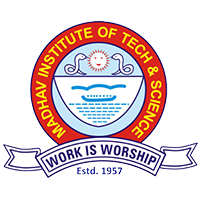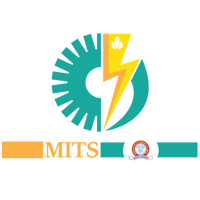POs-PEOs-PSOs
B.Tech in Computer Science and Business Systems
Programme Educational Objectives (PEOs)
- PEO-1 Successful Careers in Technology and Business: Graduates will establish themselves in diverse professional environments by applying their technical skills and business knowledge to solve real-world problems.
- PEO-2 Leadership and Innovation: Graduates will demonstrate leadership and innovation in their careers by taking on significant roles in technology and business projects.
- PEO-3 Adaptability and Continuous Learning: Graduates will be proactive in staying current with emerging technologies and business practices. They will engage in lifelong learning and professional development to adapt to the dynamic nature of technology and business environments.
Program Outcomes (POs)
- PO1 Engineering knowledge: Apply the knowledge of mathematics, science, engineering fundamentals, and an engineering specialization to the solution of complex engineering problems.
- PO2 Problem analysis: Identity, formulate, review research literature, and analyze complex engineering problems reaching substantiated conclusions using first principles of mathematics, natural sciences, and engineering sciences.
- PO3 Design/development of solutions: Design solutions for complex engineering problems and design system components or processes that meet the specified needs with appropriate consideration for public health and safety, and the cultural, societal, and environmental considerations.
- PO4 Conduct investigations of complex problems: Use research-based knowledge and research methods including design of experiments, analysis, and interpretation of data, and synthesis of the information to provide valid conclusions.
- PO5 Modern tool usage: Create, select, and apply appropriate techniques, resources, and modern engineering and IT tools including prediction and modelling to complex engineering activities with an understanding of the limitations.
- PO6 The engineer and society: Apply reasoning informed by the contextual knowledge to assess societal, health, safety, legal and cultural issues and the consequent responsibilities relevant to the professional engineering practice.
- PO7 Environment and sustainability: Understand the impact of professional engineering solutions in societal and environmental contexts, and demonstrate the knowledge of, and need for sustainable development.
- PO8 Ethics: Apply ethical principles and commit to professional ethics and responsibilities and norms of the engineering practice.
- PO9 Individual and team work: Function effectively as an individual, and as a member or leader in diverse teams, and in multidisciplinary settings.
- PO10 Communication: Communicate effectively on complex engineering activities with the engineering community and with society at large, such as being able to comprehend and write effective reports and design documentation, make effective presentations, and give and receive clear instructions.
- PO11 Project management and finance: Demonstrate knowledge and understanding of the engineering and management principles and apply these to one’s own work, as a member and Leader in a team, to manage projects and in multidisciplinary environments.
- PO12 Life-long learning: Recognize the need for, and have the preparation and ability to engage in independent and life-long learning in the broadest context of technological change.
Program Specific Outcomes (PSOs)
- PSO-1 Technical Proficiency: Graduates will be able to apply knowledge of computer science and business systems to solve complex problems in a variety of professional contexts. This includes proficiency in programming, software development, system design, and the application of algorithms and data structures.
- PSO-2 Business Acumen: Graduates will be able to analyze business requirements, design and implement IT solutions, and contribute to strategic planning and decision-making in business environments.









